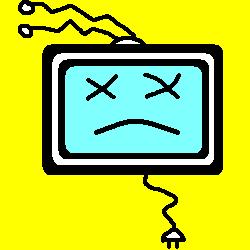DTV Broadcasts to Get Field Testing

The study by LA-based Centris predicted that 5.9 million viewers located 35 or more miles from transmitters would get fewer channels when digital signals are the only kind left. Weak analog signals result in a dirty picture, but weak digital ones can cause the picture to abruptly vanish.
This propelled Michael J. Copps into action. He's the ranking Democrat on the FCC. He sent a public letter (PDF) to the FCC's Republican chair, Kevin J. Martin, urging field tests. He aired concerns about DTV reception, antennas, and coordination with cable and satellite systems. He also pointed to a program in the U.K. that provides on-site assistance to elderly and disabled households, and urged the FCC to "assess the consumer's views" in each household involved in the field tests.
Martin agreed (PDF) to field testing in "a small number of test markets" before the 2009 deadline and promised to get the DTV Task Force to "begin exploring" Copps' other suggested initiatives.
The folks at Centris, who got the ball rolling, applauded the FCC "for taking proactive steps that will provide valuable insight into potential issues consumers will face on a local level and allow time for any necessary midcourse adjustments to ensure the success of the DTV transition."
























































